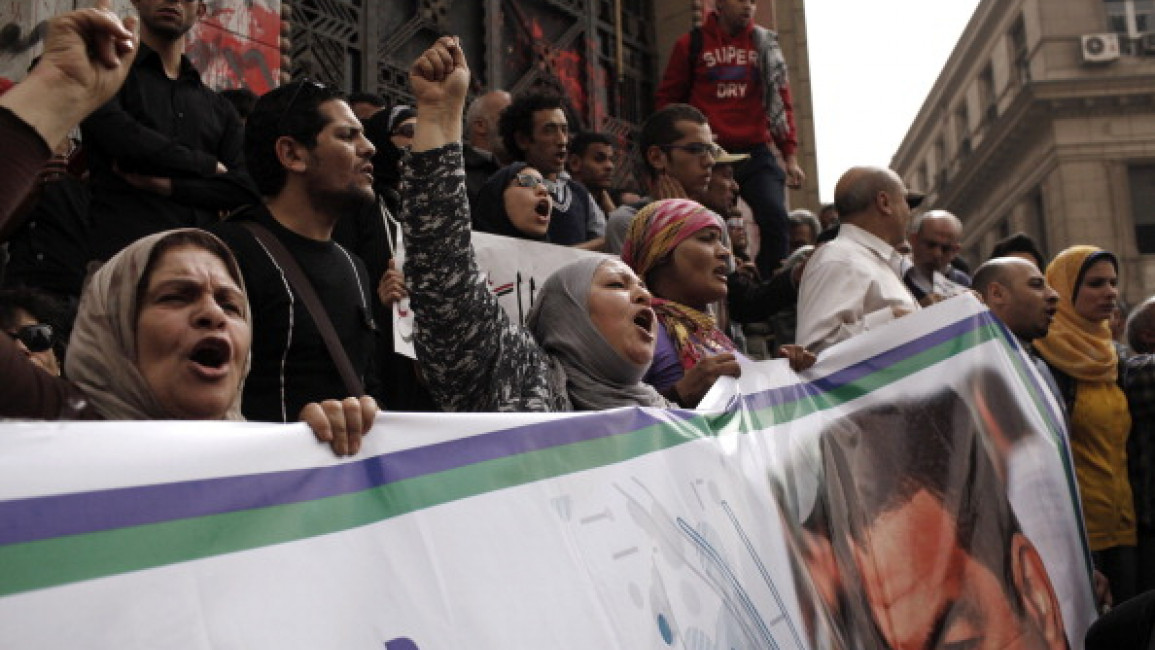Mother of Egyptian-British activist expresses fears over hunger strike
The mother of a renowned Egyptian activist who recently gained British citizenship says she fears she may not see him alive again as he approaches the end of the sixth week of a hunger strike over prison conditions.
Laila Soueif said that during a visit to her son Alaa Abd El-Fattah in prison in Cairo on Thursday an officer warned that he could block her from visiting again after she complained about alleged violations against Abd El-Fattah.
"What visit will you ban?" Soueif quoted herself as telling the officer in a social media post. "I don't have another visit except for in a month, Alaa will be dead."
Blogger and software engineer Abd el-Fattah is one of Egypt's best known activists, rising to prominence in Egypt's 2011 Arab Spring uprising.
He has been almost continuously imprisoned since 2014 on a number of charges and was sentenced in December to five years on charges of spreading false news.
On April 2 he began an open-ended hunger strike against his detention and prison conditions, ingesting only water and salt solution.
His family say he has been kept in a cell without sunlight, and deprived of books, news and exercise, after being convicted in an unfair trial. They also say he has suffered violence from prison officials after trying to press his case with a recent campaign of "civil disobedience" inside prison.
Egyptian authorities have not responded to requests for comment about his treatment and about concerns arising from the latest visits. They have previously dismissed accusations over prison conditions and said they are working to modernise the detention system.
Abd El-Fattah's family announced in April that he had obtained British citizenship through his mother. They are pressing for British officials to conduct a consular visit.
A spokesperson for Britain's Foreign Office has said consular access to a British national has been requested.
A far-reaching crackdown has swept up liberals as well as Islamists under Abdel Fattah al-Sisi, who became president in 2014, a year after leading the overthrow of Mohamed Mursi of the Muslim Brotherhood.
Rights groups say thousands of political prisoners remain in detention but Sisi and his supporters say security and stability are paramount and deny there are political prisoners in Egypt.
In April Egypt's prosecution announced the release of 41 people being held in pre-trial detention and Sisi has recently called for political dialogue. Activists say it is unclear that the moves herald any significant change.
(Reuters)


![President Pezeshkian has denounced Israel's attacks on Lebanon [Getty]](/sites/default/files/styles/image_684x385/public/2173482924.jpeg?h=a5f2f23a&itok=q3evVtko)



 Follow the Middle East's top stories in English at The New Arab on Google News
Follow the Middle East's top stories in English at The New Arab on Google News


